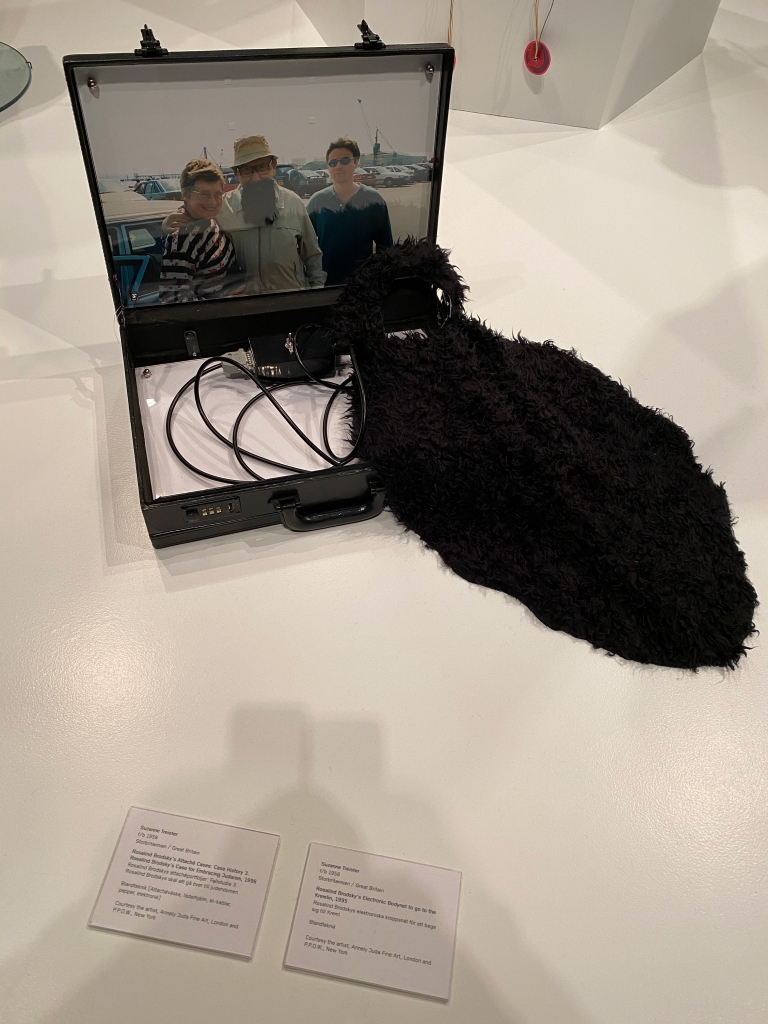
Suzanne Treister (b. 1958, UK)
Moderna Museet, Stockholm, Sweden / Visited 12/01/2020
Rosalind Brodsky’s Case for Embracing Judaism, 1996
Until this entry I kept re-iterating my position that I am not a storyteller. I have no narrative. I have no message. My work is not about me. I am mainly concerned with pointing at things and/or making meaning-generating-devices. I’d rather have audience to treat my works as their own readymades than something traceable to me as a person.
Yet, perhaps I should acknowledge that such a position to some extent is a defence mechanism against what I perceive to be recurrent demands on the artists, demands that I do not wish to deliver upon. But hiding behind a defence wall for too long may shape one into another uncomfortable position, into becoming “the one behind the wall”, which is by no means any desirable goal in itself. So I thought, I’d thrown in something that unsettles that position – a work with a fairly prescribed narrative, and, most likely, based on some personal history.
This particular selection is kinda random. It was one of the works that I had left out from my selection quite a few times, and it popped out at me when browsing through my archive again. I am not sure what to make of it. At the first sight I thought it was a very straightforward story-telling. Now, at the closer look, I am less certain. It is an installation referring to a fictitious person ready to assume yet another fictitious identity. Multiple layers of fiction. Yet, they are embodied as real objects. And fiction in itself is a real-life fact, it is only fictitious conditionally, in relation to a particular definition of reality. Thus, multiple layers of realities. Which is also a reasonable description of any person, the depth of all those surfaces, layers of meanings and experiences piled on top of each other making up us as individuals. Why would we end up here again? Perhaps due to my preferred perspective – it is yet again in the eye of the beholder. The artist may have tried to say something personal. I abstracted that to something generic. And when I am trying to say something generic, some people are bound to read it as something personal about me. Because, as opposed to me, they are more interested in people than in ideas.
So whatever you say, whatever you do may be interpreted as you intended it, or in a totally different manner, or as something in-between. One could certainly look for explanations in social structures, schooling, habitus, reproduction and subversion etc., in order to understand that dynamics and choose a strategy that might lead one to the most desirable outcome. But one could also avoid making those choices – even if some would call that a choice as well – and just do whatever they feel like doing. And not necessarily putting that into words. Or just inventing words that others can fill with iesfopiuaöosifn souefoiuaf iyeköpfig hitgzgf pig uoeuoisf oupaefuap ieouha ouwp9eugp åsihhzjye opusgui pdifu fsou poufoiyzf poufoupsfp poausfoa iyfioyp åigiehzihe ag8rgjosij ojlsiywghzof ihvduhsiohf oufligiupufs ousfioyf fpifhausf.
iefoisyfsodöidsufh!